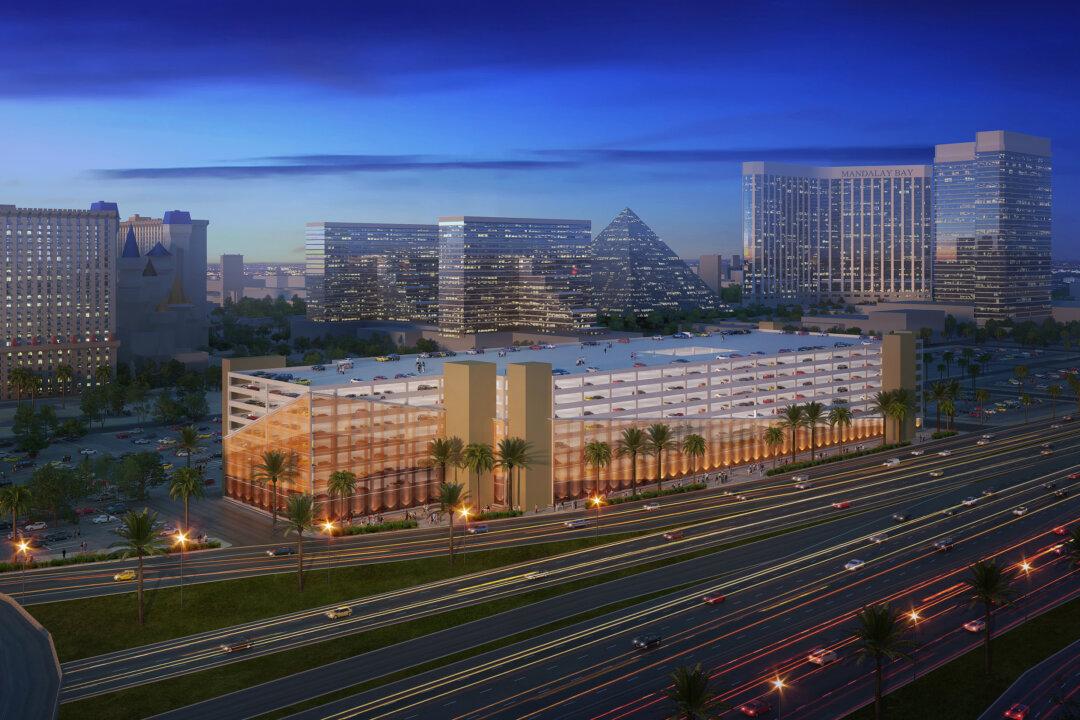LAS VEGAS—In a city built on luring tourists with cheap thrills and free cocktails, a big part of the Las Vegas Strip will soon slash away its most basic freebie: parking.
MGM Resorts International will announce Friday that it will become the first major casino company to start charging visitors for parking this year, a move that could bring in millions of dollars of revenue annually and change the landscape of the tourism hotspot that is increasingly catering to visitors who come for other pricey attractions besides gambling.
The move is a dramatic departure for both local residents and drive-in visitors who have grown accustomed to enjoying the perk of free parking when most big city venues attach a fee.

In this photo taken Thursday, Jan. 14, 2016, cars drive into the MGM Grand hotel and casino in Las Vegas. Casino giant MGM Resorts International will announce Friday, Jan. 15, that it plans to begin charging visitors for parking this year at some of its properties in Las Vegas. AP Photo/John Locher





